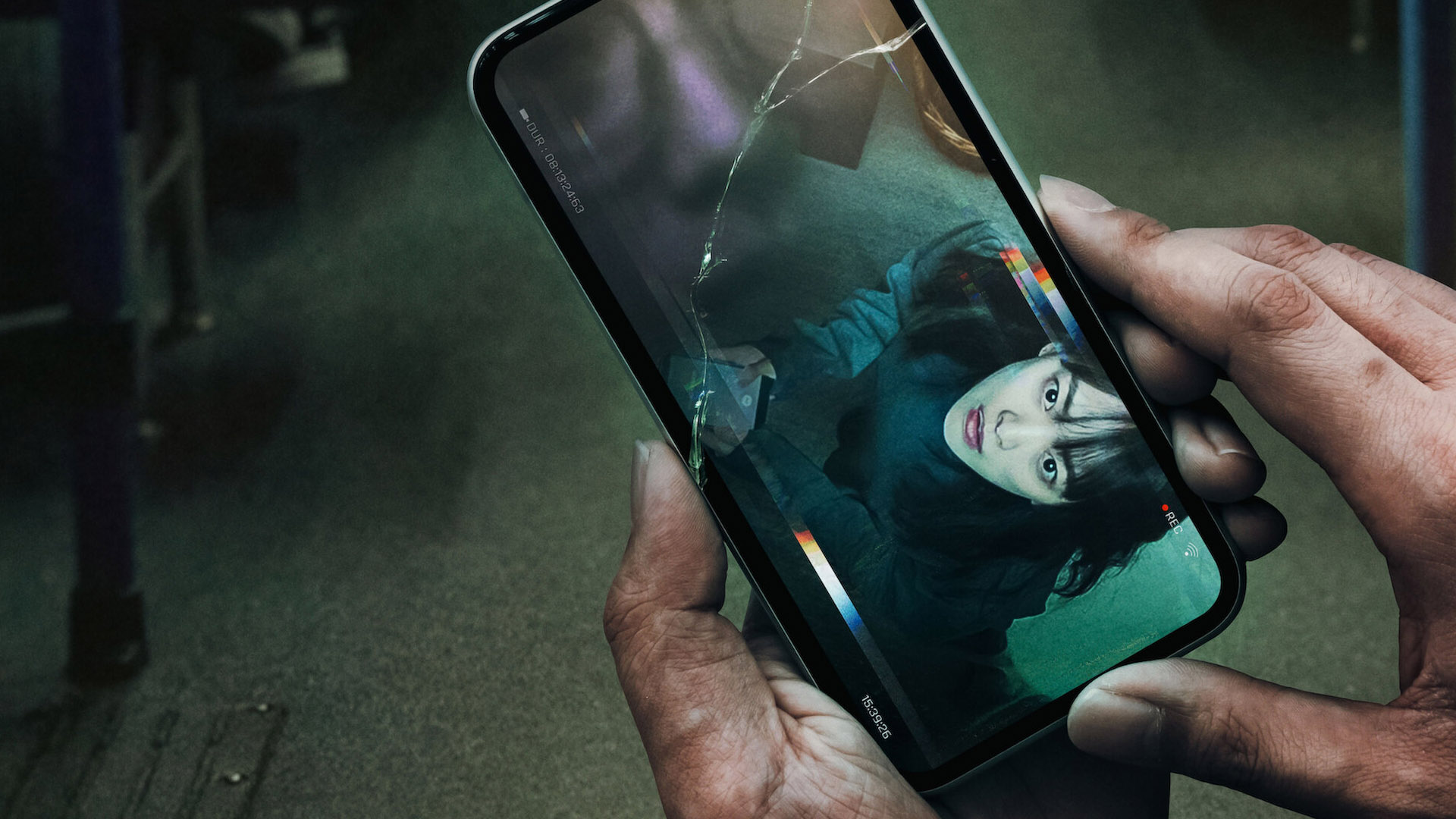There’s nothing modern horror and thriller writers hate more than a cell phone. A device that the characters can use to call for help instantly — where’s the tension in that? As a result, these stories often contrive phone-less circumstances. No signal, dead battery, the device lost or stolen. These overdone ideas are endless. However, some writers choose to look at phones not just as a cheat code for an escape, but as a source of horror in itself. Phones are like mini databases that contain all information personal and sensitive about us. Our daily routes, most embarrassing photos and banking information are within these devices. What would happen if the wrong person could access that? That is what “Unlocked” explores.
The Korean surveillance thriller opens with a cheerful, fast-paced montage following Na-mi’s (Chun Woo-hee) cell phone throughout her day: the games she plays on the subway, messages she exchanges with her friends, paying for her food and the selfies she takes with her friends. After she loses her phone, it is found by Oh Jun-yeong (Yim Si-wan) who returns it to her and uses it to track her via keylogger. A brief montage of Na-mi’s day through her cell phone is shown again, but this time interspersed with shots of Oh Jun-yeong taking notes of the people Na-mi is closest with, her daily route to work, the amount of money in her bank account. Just in case Jun-yeong’s nefarious intentions weren’t clear enough at this point, the montage ends with the reveal that a drawing of Na-mi, bound and gagged, is Jun-yeong’s new screensaver.
The film focuses on brief but menacing shots of lit-up scenes throughout the movie from which much of the movie’s suspense is derived; evoking the dread of being stalked by a nefarious figure. Despite its clever use of smartphones, “Unlocked” does not possess much in the way of suspense or tension. Na-mi is too incurious and thus comes across as naive and clueless. Her actions, which seem designed merely to keep the movie going forward make it difficult to be invested when terrible things start happening to her. When Na-mi is fired from her job and loses her best friend thanks to Jun-yeong’s actions, it’s difficult for the audience to care, because Na-mi feels more like an avatar for a screenwriter to move the plot forward rather than a real person.
A subplot about Jun-yeong’s father (Kim Hee-won), a detective desperately trying to catch his serial killer son while pondering on his guilt over how Jun-yeong turned out could have been interesting. But it too lacks depth and instead feels more like an attempt to pad out the screen time in order to hit the two-hour mark. A last-minute plot twist destroys any impact this arc could have had in its entirety.
It is a film that could have benefitted from a shorter runtime. The first hour of the film plods along until the detective and Na-mi team up to catch Jun-yeong when things should start getting interesting. Instead of leaning into the killer’s macabre tendencies that have been explicitly hinted at throughout the movie, the film suddenly gets cold feet and shies away from any genuine fear or menace. For all his careful serial killer methodicalness, Jun-yeong feels strangely de-fanged.
A plot twist should be exciting. It should have the audience racing to re-evaluate the past two hours of the film. It should not make you shrug your shoulders, apathetic and say “Sure. That might as well happen.” Unfortunately, that is what happens with a rather lackluster last-minute plot twist that is there for the sake of being a plot twist. It is an apt description of the entire movie, which feels like it was made for the sake of being made. For a thriller, it’s not particularly thrilling and offers nothing countless better genre films haven’t already done.
Verdict: A dull, plodding offering to the thriller genre that could have benefitted from a couple more rewrites. Ultimately, it winds up being an unexciting addition to a genre that depends on excitement.








